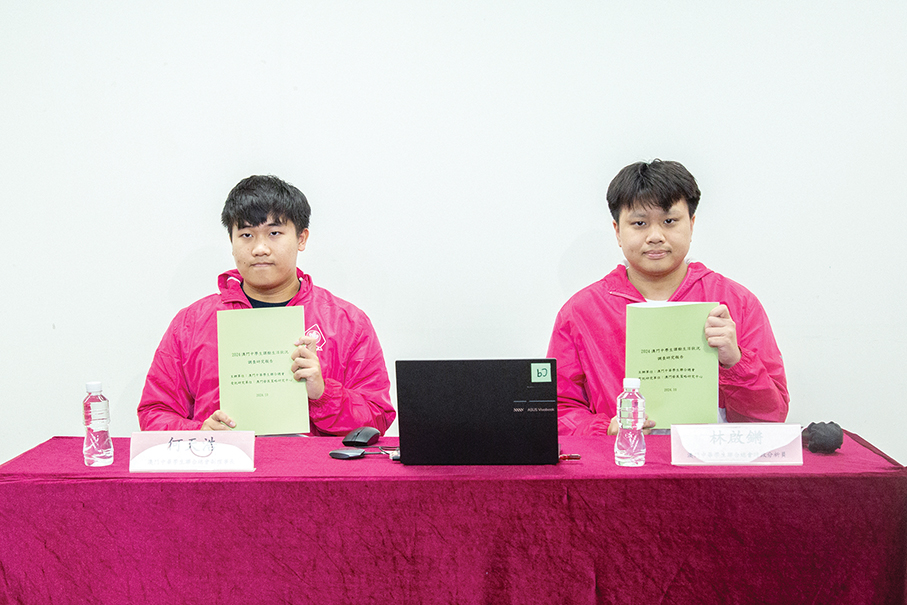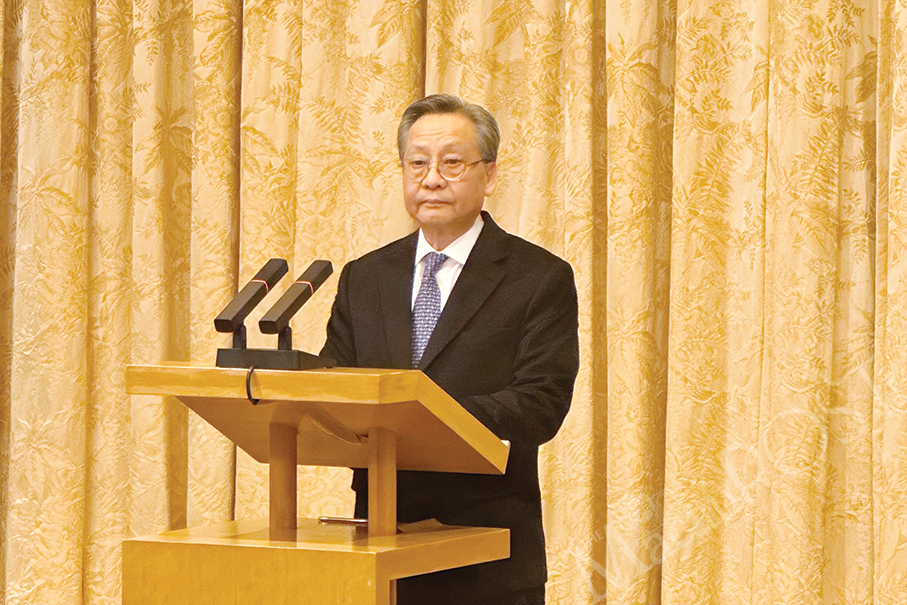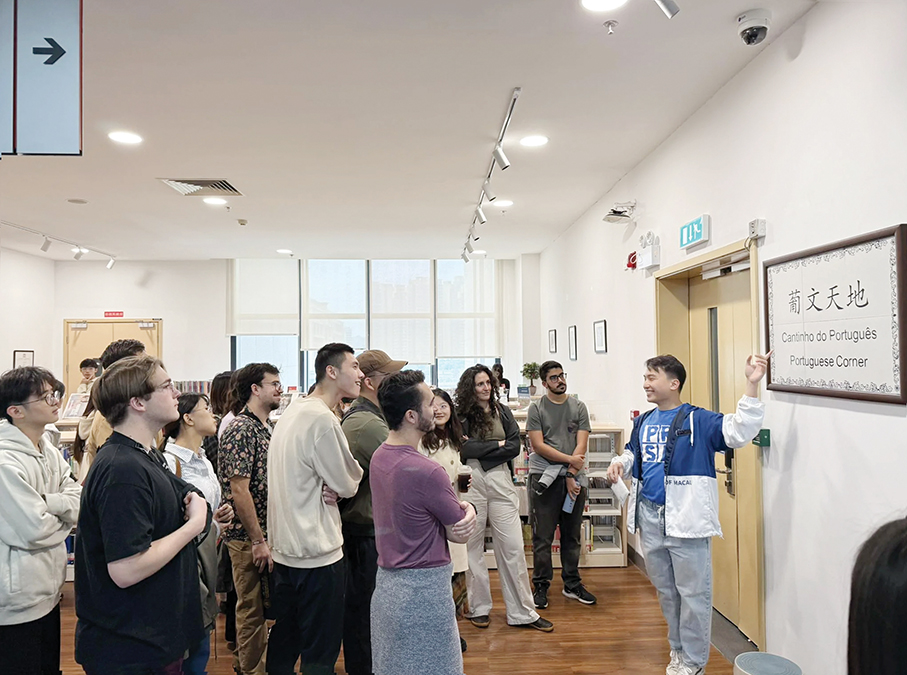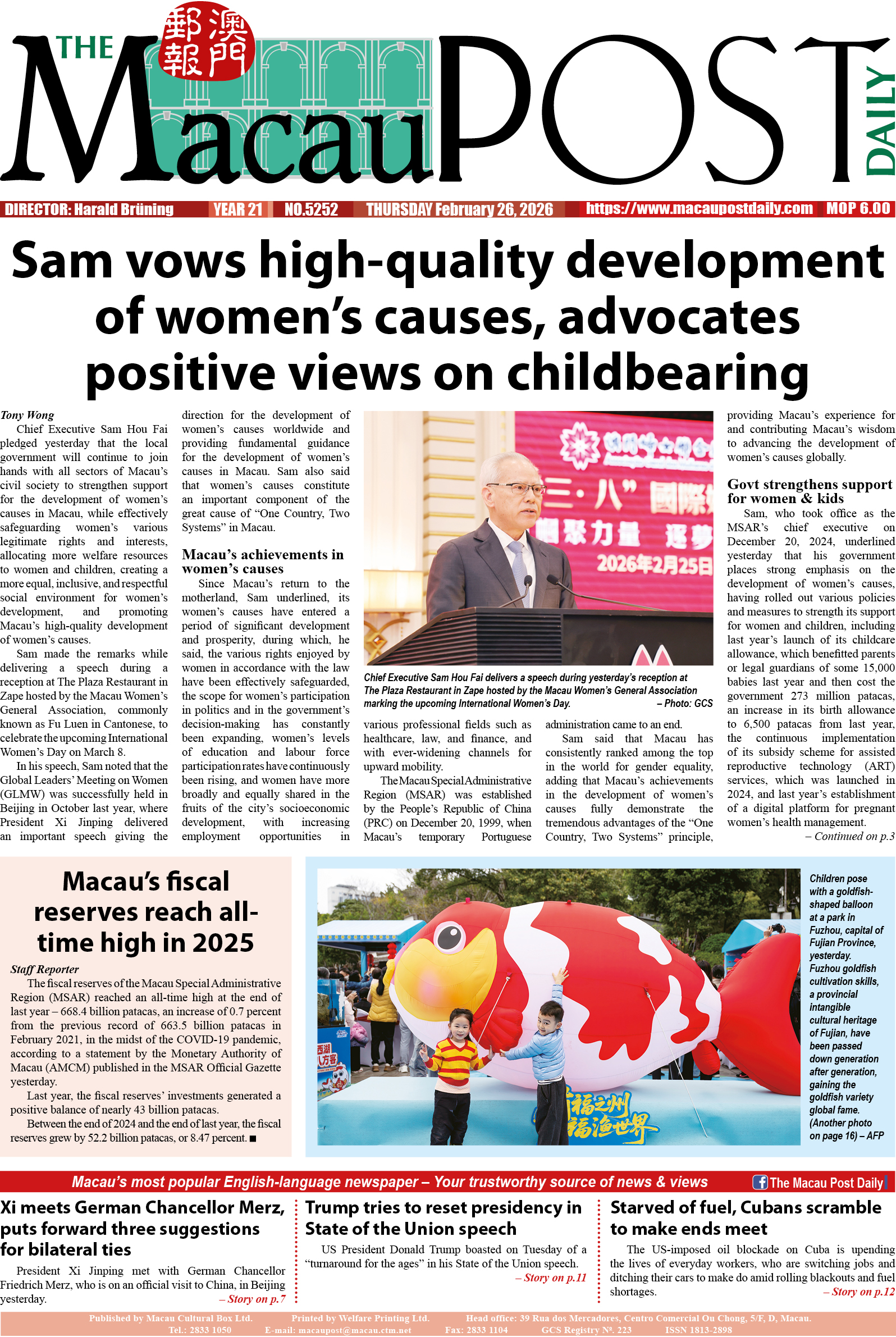The General Association of Chinese Students of Macau conducted a survey on June 6-16 on the after-school life of secondary school students, the findings of which show that 90 percent of the respondents said they were facing different degrees of pressure from schoolwork, with 19 percent of the respondents “often” or “always” feeling tired after attending tutorial classes or extracurricular activities after school.
The association collected 1,769 valid questionnaires – 698 by male and 1,071 by female respondents. In terms of grade distribution, except for Form 6 students, who accounted for a smaller proportion, the distribution of the other grades was relatively even. Among them, internet activity ranked top in their after-school life with an overwhelming proportion, as about 94.29 percent of secondary school students said that they go online every day after school, apart from watching TV and listening to music, as well as playing video games –their three major “indispensable” activities, according to a statement by the association to the Post yesterday.
A total of 1,769 secondary school students from 14 local secondary schools were interviewed in the survey. The findings show that the respondents are facing various kinds of pressure, among which 34 percent of them felt “very much” pressurised by their schools’ homework arrangements, with only about 10 percent saying that they felt “almost no” pressure at all from the homework arrangements.
About 74.87 percent of the respondents participated in after-school tutorials and extracurricular classes for at least one to five hours a day, with “hobbies” being the students’ top priority when choosing their tutorials or classes, accounting for 28.37 percent of their after-school activities, far exceeding the “demand for further studies”, accounting for just 15.12 percent, indicating that students are more inclined to satisfy their personal preferences than engage in further studies. A total of 460 respondents said they were spending time on rest, study or social activities after school, the findings noted.
The findings point out that more than 40 percent of the respondents limit their after-school activities to less than two hours on weekdays, while nearly 60 percent of the respondents participate in after-school activities for a relatively longer period of time on holidays than on weekdays, indicating that parents and students attach great importance to self-improvement, emphasis on academic achievements, or the development of hobbies and personal interests.
In addition to schoolwork, the findings show that other sources of stress among the respondents are interpersonal relationships, emotions, family finances and part-time jobs, with proportions of 77.49 percent, 63.09 percent, 56.92 percent, and 18.77 percent. The findings point out that in the face of pressure, “sleeping” is the most popular stress reliever among secondary school students, followed by “listening to music” and “playing video games”, while only about 30 percent choose outdoor activities such as going out for a walk, shopping, or exercising to relieve pressure.
According to the findings, the respondents’ interpersonal relationships with friends and family members are relatively good, while teachers account for the largest proportion of respondents with “bad” or “very bad” relationships, standing at about 15.55 percent.
The findings also point out the importance of friendships with relatives and peers, showing that “parents or other family members”, “friends at school” and “classmates” are the main companions of secondary school students after school.
Meanwhile, the findings also show that there is a very small number of students choosing to “de-stress in an undesirable way”, and the association, in its interpretation of the findings, urged parents and schools to work together to teach their students to manage stress and learn how to face stress and frustration in a healthy manner. It also suggested that the government should pay more attention to and continue to invest resources in promoting students’ healthy development.

This handout photo provided by the General Association of Chinese Students of Macau yesterday shows its two representatives, Ho Tin Hou (left), vice-president of the 62nd Executive Committee, and Lin Qiqiang, current affairs analyst, posing with copies of the survey findings during Wednesday’s press conference on its premises on Rua Manuel Arriaga (亞利鴉架街).









